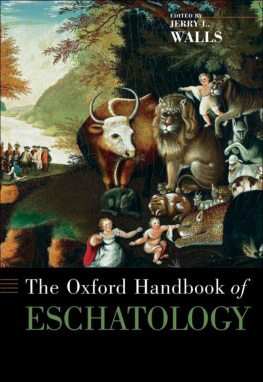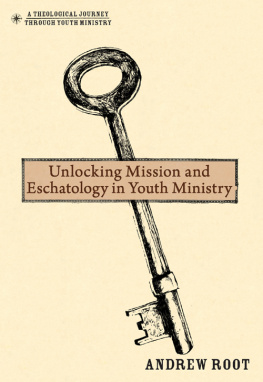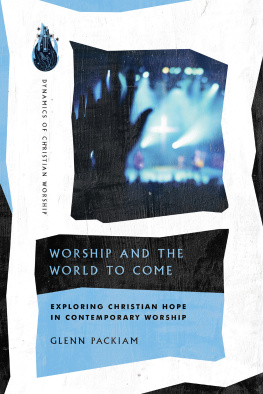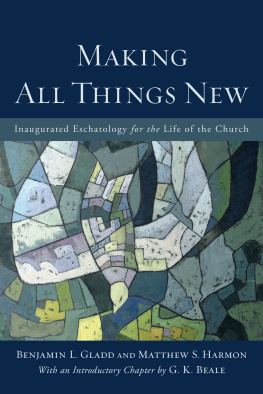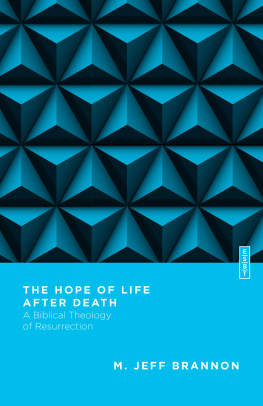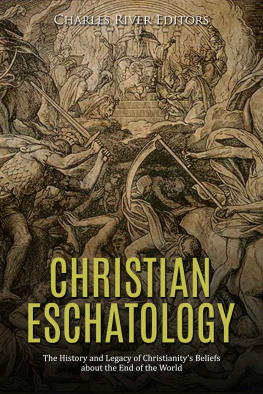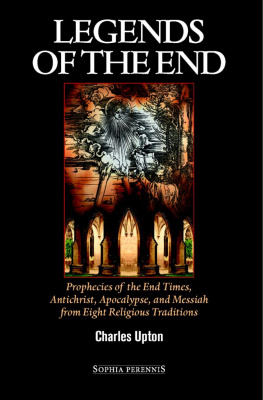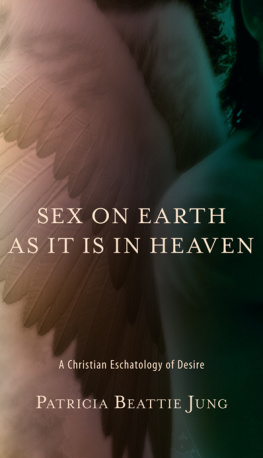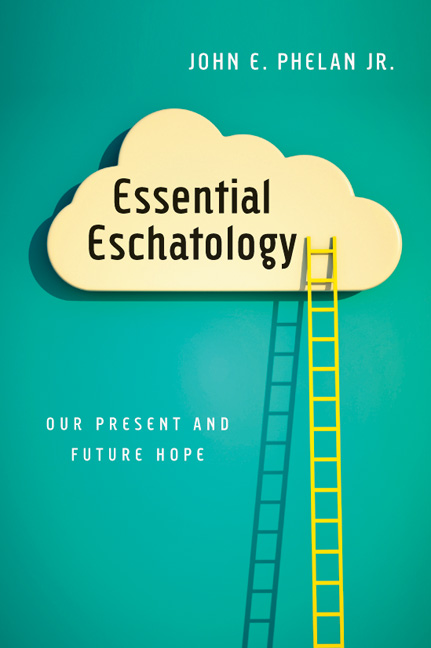InterVarsity Press
P.O. Box 1400,
Downers Grove, IL 60515-1426
World Wide Web: www.ivpress.com
E-mail:
2013 by John E. Phelan Jr.
All rights reserved. No part of this book may be reproduced in any form without written permission from InterVarsity Press.
InterVarsity Pressis the book-publishing division of InterVarsity Christian Fellowship/USA, a movement of students and faculty active on campus at hundreds of universities, colleges and schools of nursing in the United States of America, and a member movement of the International Fellowship of Evangelical Students. For information about local and regional activities, write Public Relations Dept., InterVarsity Christian Fellowship/USA, 6400 Schroeder Rd., P.O. Box 7895, Madison, WI 53707-7895, or visit the IVCF website at < www.intervarsity.org >.
Scripture quotations, unless otherwise noted, are from the New Revised Standard Version of the Bible, copyright 1989 by the Division of Christian Education of the National Council of the Churches of Christ in the USA. Used by permission. All rights reserved.
Cover design: Cindy Kiple
Images:
ladder and cloud Dmitriy Shpilko/iStockphoto
wooden ladder pialhovik/iStockphoto
ISBN 978-0-8308-6465-2 (digital)
ISBN 978-0-8308-4025-0 (print)
To my granddaughter Brenna Kinsale Nelson-Phelan
with a prayer that her generation will see the church
genuinely living in light of the new creation
Contents
Acknowledgments
Every author is part of a community of the living and the dead. Teachers, colleagues, students, parishioners, friends and family have all made their contributions to this book. Some of them will be pleased with the outcome. Others surely will not! I want first to thank Scott Bolinder who encouraged me to write this book. I am especially thankful to my colleagues in the biblical field at North Park Theological Seminary, particularly Dr. Klyne Snodgrass who read the manuscript and made a number of helpful suggestions and corrections. Klyne has been a conversation partner for decades, and I am deeply thankful for his friendship and encouragement. I am also thankful for the support of Dean of Faculty Stephen Chester and Dean of the Seminary David Kersten. I want to thank the board of North Park University and President David Parkyn for supporting a sabbatical leave. A good deal of the research for this book was done during those blessed months.
I want to thank the ministerium of the Central Conference of the Evangelical Covenant Church and its superintendent, Rev. Jerome Nelson, for the opportunity to share some of the content of this book at its fall retreat. Similar thanks goes out to the North Pacific Conference and its then superintendent Rev. Mark Novak. I would also like to thank Rev. Donn Engebretson for the invitation to present material from the book at the Evangelical Covenant Churchs midwinter pastors conference. The questions and observations at these events and at the many churches where I have shared my ideas have been extremely helpful. Special thanks are due to my friend and supporter of longstanding Rev. Glenn Palmberg, former president of the Evangelical Covenant Church. Glenn has consistently encouraged my writing and leadership at North Park. His friendship is a treasure.
I have been particularly blessed by my ongoing conversations with Rabbi Yehiel Poupko of the Jewish Federation of Chicago. His enduring friendship and fearless questions have been of immense benefit. Although he will clearly not agree with many of my conclusions, I trust this is a better book because I have listened to him. As a result of my friendship with Rabbi Poupko I have over the last few years participated in a Jewish-evangelical dialogue. The friendships formed there and the conversations that have ensued have enriched my life and this book. I wish to thank David Neff for the invitation to participate and Dr. A. J. Levine and Rabbi David Fox Sandmel for being good conversation partners on the biblical text and Jewish-Christian relations.
I wish to thank my editor with InterVarsity Press, Drew Blankman, for his encouragement, support and advice on this project. I thank the entire team at InterVarsity for their work to make this a better book.
Finally, I wish to thank my family: my wife, Dawn, my sons, Bryan and Andrew, and their spouses, Katrina and Dana. Thanks to Dawn especially for putting up with the piles of books. I fear they will not soon disappear.
John E. Phelan Jr.
Introduction
Eschatology, or the study of last things, is often considered the periphery of the Christian faith. Some consider it the esoteric purview of fanatics or, more charitably, scholars. Others, of course, are utterly fascinated by the interpretive puzzles of Daniels prophecy and Johns Revelation. By rearranging the pieces they hope to discover a coherent road map to the futurein spite of the fact that history is littered with discarded and discredited maps. Few seem discouraged by this. However, neither indifference nor obsession do justice to the importance of eschatology in Christian faith and life. Far from being at the periphery of the faith, it is no exaggeration to say that eschatology is the heart of Christianity.
The Bible is a narrative that begins in creation and ends in new creation. Israels prophets anticipated a time when their God would rule over all the earth. Jesus came proclaiming the presence of the kingdom of God and called his followers to live out of the values of that kingdom. Paul insisted that the resurrection of Jesus was the initiation of the great and final resurrection, and that through Jesus death and resurrection the enslaving powers had been defeated. John called on the churches of Asia Minor to remain faithful in the face of cultural pressures and outright persecution, confident that Gods final purposes would be accomplished. Every part of the Bible is written with the end in view that, as Paul would put it, God would be all in all (1 Cor 15:28).
Eschatology is no more peripheral to Christianity than an engine is peripheral to a car. Without eschatology Christian faith goes nowhere. Without an engine a car may look good. It may be comfortable. But lacking an engine it is at best an interesting museum piece and at worst a rusting piece of junk. Eschatology gives Christianity the power to be more than wistful nostalgia or weekly entertainment. The ethics of the kingdom give Christians and the Christian community character and identity. Biblical warnings of Gods judgment provide Christians with a moral vision. The promise of resurrection and new creation provides Christians with hope. Without eschatology Christianity has no mission and the church has no purpose.
Eschatology is more than what will happen in the last days. It is more than when Jesus will come or whether there will be a millennium. While these issues are important, eschatology touches on matters that are much closer to home for many of us. Who am I? What does it mean for me to exist? Does my body have a soul or is my body ensouledthat is, can my soul exist apart from my body? What does it mean to die? What happens to our loved ones when they die? Are they with God in heaven? Do they sleep and await the resurrection of the dead? What is heaven anyway? What about those who are not Christians? Will they go to hell forever, or will God give them another chance? What is hell anyway? What is the resurrection of the dead? What will it entail, and when will it occur? What is the final destiny of Gods people? Will they go to heaven when they die or live on the new earth? Will Gods people go to heaven, or will heaven come to them? These and other very profound and personal questions are


